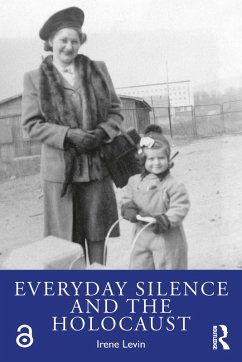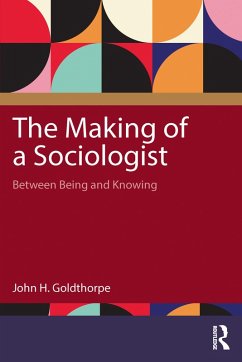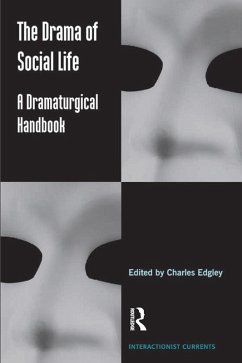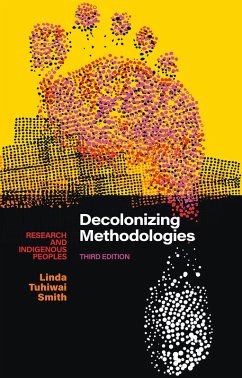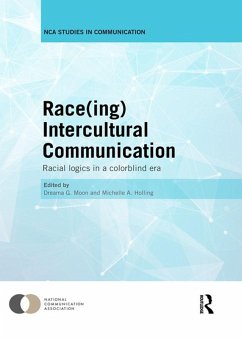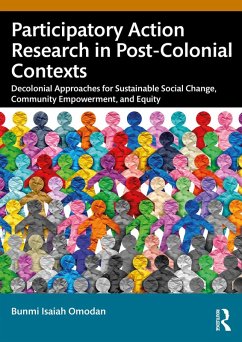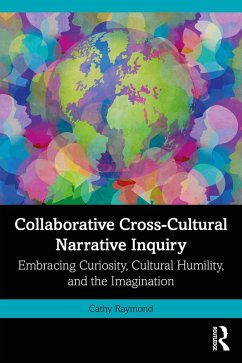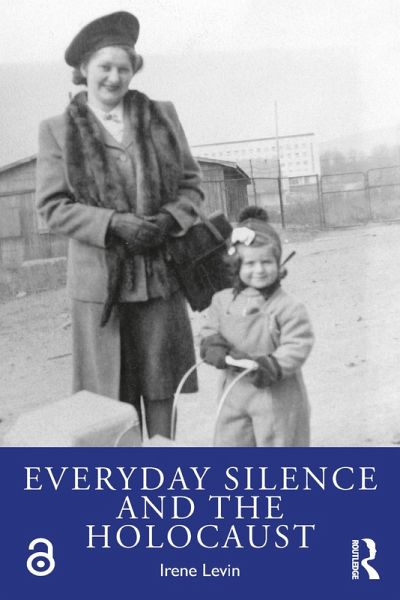
Everyday Silence and the Holocaust (eBook, ePUB)
Versandkostenfrei!
Sofort per Download lieferbar
35,95 €
inkl. MwSt.
Weitere Ausgaben:

PAYBACK Punkte
18 °P sammeln!
Everyday Silence and the Holocaust examines Irene Levin's experiences of her family's unspoken history of the Holocaust and the silence that surrounded their war experiences as non-topics.A central example of what C. Wright Mills considered the core of sociology - the intersection of biography and history - the book covers the process by which the author came to understand that notes found in her mother's apartment following her death were not unimportant scribbles, but in fact contained elements of her mother's biographical narrative, recording her parents' escape from occupied Norway to unoc...
Everyday Silence and the Holocaust examines Irene Levin's experiences of her family's unspoken history of the Holocaust and the silence that surrounded their war experiences as non-topics.
A central example of what C. Wright Mills considered the core of sociology - the intersection of biography and history - the book covers the process by which the author came to understand that notes found in her mother's apartment following her death were not unimportant scribbles, but in fact contained elements of her mother's biographical narrative, recording her parents' escape from occupied Norway to unoccupied Sweden in late 1942. From the mid-1990s, when society began to open up about the atrocities committed against the Jews, so too did the author find that her mother and the wider Jewish population ceased to be silent about their war experiences and began to talk. Charting the process by which the author traced the family's broader history, this book explores the use of silence, whether in the family or in society more widely, as a powerful analytic tool and examines how these silences can intertwine. This book provides insight into social processes often viewed through a macro-historical lens by way of analysis of the life of an "ordinary" Jewish woman as a survivor.
An engaging, grounded study of the biographical method in sociology and the role played by silence, this book will appeal to readers with an interest in the Holocaust and World War II, as well as in social scientific research methods. It will be of use to both undergraduate and postgraduate scholars in the fields of history, social science, psychology, philosophy, and the history of ideas.
The Open Access version of this book, available at http://www.taylorfrancis.com, has been made available under a Creative Commons [Attribution-Non Commercial-No Derivatives (CC-BY-NC-ND)] 4.0 license.
A central example of what C. Wright Mills considered the core of sociology - the intersection of biography and history - the book covers the process by which the author came to understand that notes found in her mother's apartment following her death were not unimportant scribbles, but in fact contained elements of her mother's biographical narrative, recording her parents' escape from occupied Norway to unoccupied Sweden in late 1942. From the mid-1990s, when society began to open up about the atrocities committed against the Jews, so too did the author find that her mother and the wider Jewish population ceased to be silent about their war experiences and began to talk. Charting the process by which the author traced the family's broader history, this book explores the use of silence, whether in the family or in society more widely, as a powerful analytic tool and examines how these silences can intertwine. This book provides insight into social processes often viewed through a macro-historical lens by way of analysis of the life of an "ordinary" Jewish woman as a survivor.
An engaging, grounded study of the biographical method in sociology and the role played by silence, this book will appeal to readers with an interest in the Holocaust and World War II, as well as in social scientific research methods. It will be of use to both undergraduate and postgraduate scholars in the fields of history, social science, psychology, philosophy, and the history of ideas.
The Open Access version of this book, available at http://www.taylorfrancis.com, has been made available under a Creative Commons [Attribution-Non Commercial-No Derivatives (CC-BY-NC-ND)] 4.0 license.
Dieser Download kann aus rechtlichen Gründen nur mit Rechnungsadresse in A, B, BG, CY, CZ, D, DK, EW, E, FIN, F, GR, HR, H, IRL, I, LT, L, LR, M, NL, PL, P, R, S, SLO, SK ausgeliefert werden.




